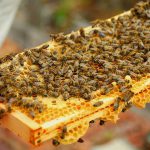
Press release
As energy plays a large and very critical role in dairy processing, this sector places a significant emphasis on energy efficiency and cost management, to ensure that essential dairy goods are delivered to consumers as quickly and cost-effectively as possible.
South African operations and maintenance service provider to the steam and boiler sector, Associated Energy Services (AES), has a critical role to play in supporting and assisting the dairy industry to be as efficient and sustainable as possible, says AES commercial director, Dennis Williams.
Williams points out that service level agreements (SLAs) between major dairy producers and AES clearly stipulate key deliverables which are central to enabling this vital industry to fully realise the high expectations which it places on processing equipment and facilities – regarding throughput, efficiencies and effectiveness.
Steam support for seasonality
As part of its dedication to closely partnering with a wide portfolio of key vertical industries, AES has a keen understanding of the many challenges faced by dairy manufacturers. One such challenge – which has to be consistently and closely monitored – is seasonality.
“AES’s role is to ensure that there is no failure in the steam supply during peak periods when the energy plant is running at maximum capacity. As suppliers of steam, we need to ensure that plant is well maintained and that any standby plant is ready to continue the steam supply at a moment’s notice, as the manufacturer cannot afford to be unable to process peak seasonal milk flows which it receives daily,” Williams says.
Seasonality also impacts on planned maintenance. Milk has a very short shelf life, and wastage of milk which has already been purchased from farmers – and cannot be processed – increases production costs.
Safe, clean steam
A third challenge which AES faces on behalf of dairy producers is the need for quality steam that is safe and hygienic.
“This requires carefully considered water treatment that relies on the use of food grade chemicals. Temperature too is critical, especially when it comes to pasteurisation. Dairy processing requires constant steam pressure, to ensure that equipment such as spray driers can operate efficiently on an ongoing basis,” Williams advises.
In addition to meeting stringent specifications set out in each service level agreement (SLA), AES also provides its Remote Monitoring System (RMS) which enables dairy clients to monitor temperatures and pressure flows.
Steam updates via RMS
“In this way, clients can see what is happening on our side of the fence with regards to the steam control parameters,” he notes.
“Our SLA specifically addresses steam pressure requirements, as this is a good indication in terms of the dryness fraction – and, specifically, the temperature of the steam. This then becomes the main control input into the clients’ process. Furthermore, if clients are getting the right control inputs, they will potentially put components such as pressure-reducing stations in place. This ensures that steam pressure is in the control range of the pasteurisers and the other equipment they are using,” he explains.
Williams furthermore notes that the client’s steam requirements and tolerances do depend on the sophistication of the energy plant in use, and also on the specific products being manufactured at different dairies.
While some larger operations are state-of-the-art and have many product lines, there are also some dairies which are just focused on keeping less sophisticated equipment operational – with a smaller product range – in the hope of an economic upturn.
Diverse dairies
“A dairy that is only producing milk will have different requirements to a facility that is producing cheeses and yoghurts. In addition, the state of technology and continuous improvement practices will depend on the plant itself. One may find a traditional dairy using very basic technology in contrast to a dairy that is on the cutting edge in terms of their processes and energy operations. So, when one considers integrating energy streams across this broad spectrum, there are a number of different requirements which makes this process really interesting,” he observes.
Closely aligned with this is sustainability. Williams says some top dairies are taking this extremely seriously, in response to pressure from high-profile retail clients such as Woolworths and Spar.
Sustainable, ‘greener’ dairies
“Up until fairly recently, most have operated coal boilers or relied on less environmentally-friendly fuels such as heavy furnace oil, which has a high sulphur content. AES constantly monitors technology trends, together with the quality and availability of alternative fuel sources – such as biomass and biogas – in order to support dairy clients which are looking to use different fuels to minimise their carbon footprints.”
To this end, a major dairy in the Eastern Cape recently installed a second boiler fuelled by biomass. AES has assisted operationally to identify areas which may require adjustment to ensure efficiency and reliability. AES operates the steam plant at this dairy including a boiler that uses biogas harvested from its wastewater.
AES has also provided site based expertise, employing an additional millwright to facilitate the generation of ultra-clean steam needed in some of this dairy’s highly specialised production processes.
Asset care – and communications
Whether working on specific projects or operating on site 24/7, Williams says it is extremely important for AES to forge strong relationships with its dairy clients through good communication in order to mitigate daily or weekly problems or even assist with any product trials.
Also central to this relationship is taking care of a client’s plant and equipment.
“We need to make sure that our clients’ assets are well maintained, because they are expensive and also mission-critical. Further to this – and very importantly – pressure vessels are potentially very dangerous, so we need to make sure that we operate them according to the most stringent safety regulations at all times.
Skilled asset management is definitely an important part of what we do, so that when it is peak season for our dairy clients, their energy plants and processing lines are in optimal condition – with minimal likelihood of an outage or downtime. We also need to operate efficiently so that we are not impacting negatively on the carbon footprint of the site or even using excessive amounts of fuel.
Reliable, cost-effective energy optimisation and asset management are just some of the ways in which we ensure that our dairy clients can consistently – and sustainably – produce products which are the ‘cream of the crop’,” Williams concludes.
Relevant Agribook pages include “Dairy cattle farming“, “Dairy processing“, “Energy” and “Renewable and alternative energy“.







